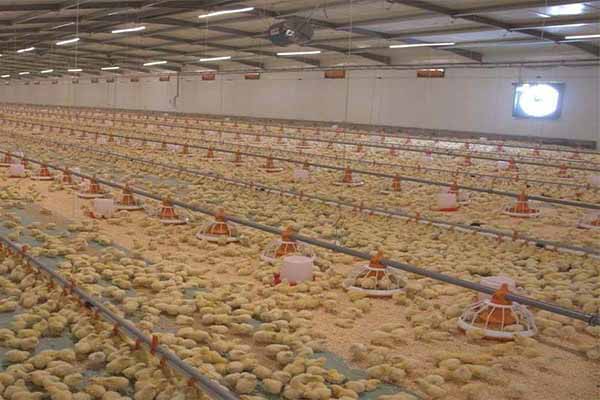Import Policy for Automated Chicken Farms in Kenya: A Guide for Chinese Manufacturers
Time : 2025-07-25
As a leading manufacturer of poultry equipment from China, Livi Machinery is well-versed in the intricacies of the global poultry industry. One area that has seen significant growth in recent years is the automated chicken farm sector in Kenya. With a growing demand for poultry products and the rise of modern farming techniques, understanding the import policy for automated chicken farms in Kenya is crucial for any foreign manufacturer looking to enter this market. In this article, we’ll delve into the key aspects of Kenya’s import policy and how Chinese manufacturers like Livi Machinery can navigate this process successfully.
Understanding Kenya’s Import Policy
1. Compliance with Standards
The first step in importing automated chicken farm equipment into Kenya is ensuring that the products comply with local standards. Kenya has stringent regulations to protect the interests of consumers and the environment. It is essential for Chinese manufacturers to ensure that their products meet these standards before attempting to import.
– KICE Standards: Kenya Industrial Standards Institution (KICE) is the regulatory body responsible for setting and enforcing standards. All equipment must comply with KICE standards.
– CE Marking: Although not mandatory for Kenya, the CE marking is an internationally recognized standard that demonstrates the conformity of a product’s safety, health, and environmental protection.
2. Import Licensing
All imports into Kenya require an import license. For automated chicken farm equipment, this process involves:
– Application: Manufacturers must apply for an import license through the Kenya Revenue Authority (KRA).
– Documentation: A complete set of documents, including the bill of lading, commercial invoice, and certificate of origin, must accompany the application.
3. Custom Duties and Taxes
Custom duties and taxes are an important consideration when importing equipment into Kenya. Here’s what you need to know:
– Custom Duties: Automated chicken farm equipment is subject to customs duties, which vary depending on the category of the product.
– Value-Added Tax (VAT): A standard rate of 16% VAT is applicable on the value of the imported goods.
– Withholding Tax: A 5% withholding tax on the total invoice value may apply.
4. Quarantine and Inspection
All imported goods are subject to inspection by the Kenya Bureau of Standards (KEBS) and the Kenya Plant Health Inspectorate Service (KEPHIS) to ensure they meet the required standards.
– Quarantine: Goods may be held in quarantine for inspection, which can delay the import process.
– Certificates: Importers must provide phytosanitary certificates and other relevant documents to facilitate the inspection process.
Tips for Chinese Manufacturers
1. Research and Compliance
Before attempting to import, Chinese manufacturers should thoroughly research Kenya’s import policies and standards. This includes understanding the local market, consumer preferences, and the specific requirements for automated chicken farm equipment.
2. Local Partnerships
Establishing partnerships with local distributors or agents can greatly facilitate the import process. Local partners can help navigate the regulatory landscape, manage logistics, and provide after-sales support.
3. Cost Management
Understanding the cost implications of importing into Kenya is crucial. This includes not only the cost of the equipment but also transportation, duties, taxes, and any other associated expenses.
4. Quality Assurance
Maintaining high-quality standards is paramount. Ensuring that products meet both international and local standards will help build trust with local consumers and businesses.
Conclusion
Entering the Kenyan market with automated chicken farm equipment can be a rewarding venture for Chinese manufacturers like Livi Machinery. By understanding and adhering to Kenya’s import policy, manufacturers can successfully navigate the regulatory landscape and establish a strong presence in this growing market.
For more information on importing automated chicken farm equipment into Kenya, or for assistance with your poultry equipment needs, contact Livi Machinery today.












